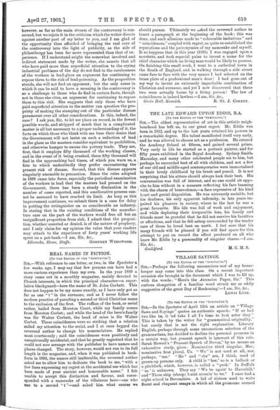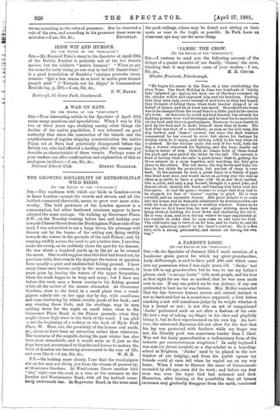[TO THE EDITOR OF THE "SPEcrsTort.1 SIR,—In the Spectator of
April 13th an article on "Village Saws and Sayings" quotes an authentic speech : "If us had two like he, it 'ud take I all rs time to look arter they." This is taken by the writer for "grammatical originality," but surely that is not the right explanation. Literary English, perhaps through some unconscious selection of the grammarians, has decided to decline the personal pronoun in a certain way, but peasant speech is ignorant of this rule. Sarah Hewett's 'Peasant Speech of Devon," by no means an exhaustive study, gives : Nominative third singular, Her; nominative first plural, Us. " We " is not used at all, nor, perhaps, "me." " He " and "she" are, I think, used of grown-up persons only. A child is "her,' so is a bullock or a pitchfork, which, however, is called a "peek," In Suffolk "us' is unknown. They say "We be agoin' to Haverhill," and" Them ship (sheep) b aint acomin' to we." I once had a night school in Devonshire. A lad of sixteen used to write fluent and eloquent essays in which all the pronouns seemed
wrong according to the rules of grammar. But he observed a rule of his own, and according to his grammar there were no























































 Previous page
Previous page